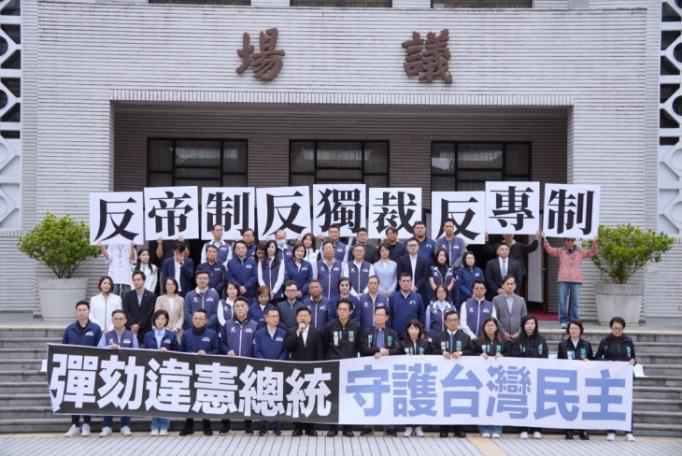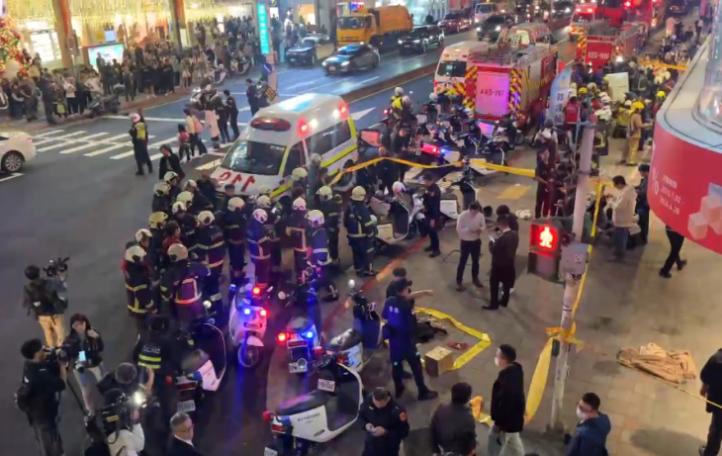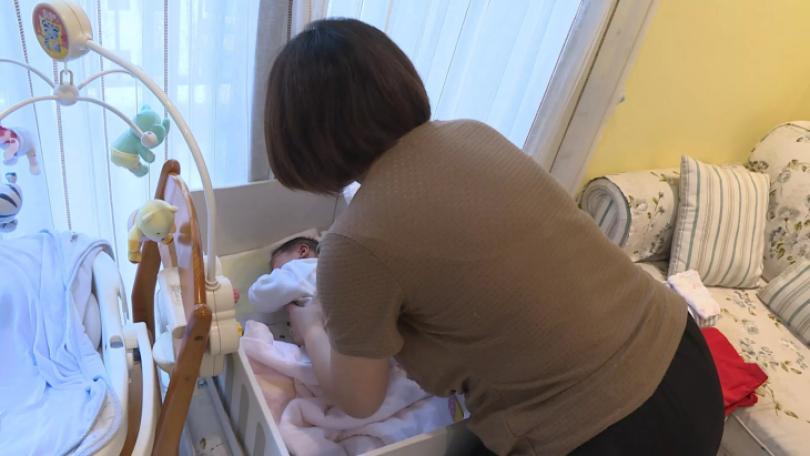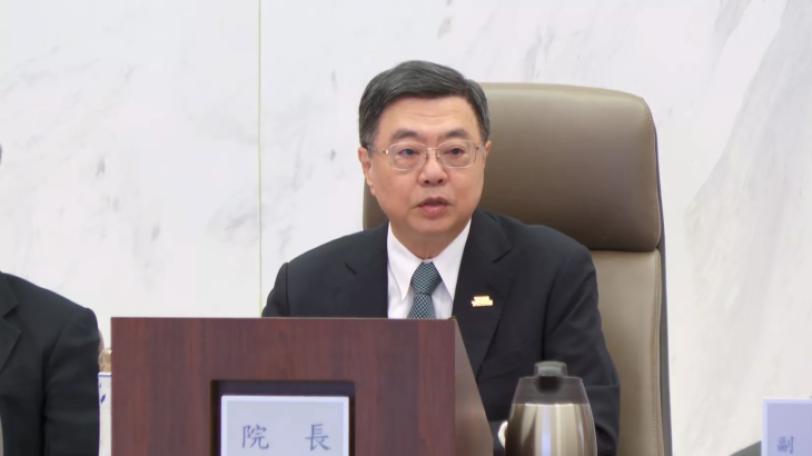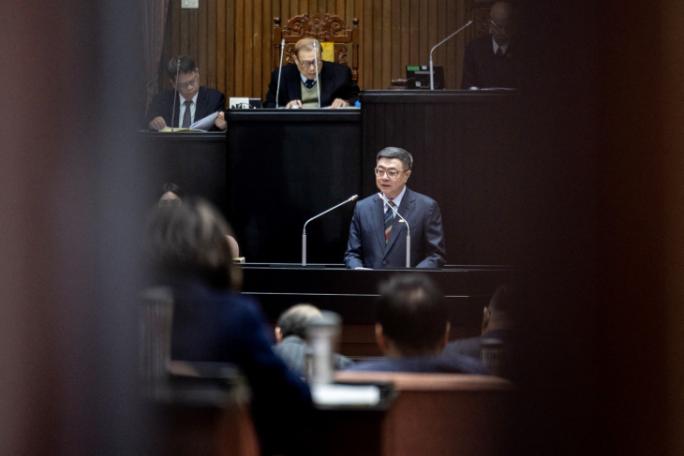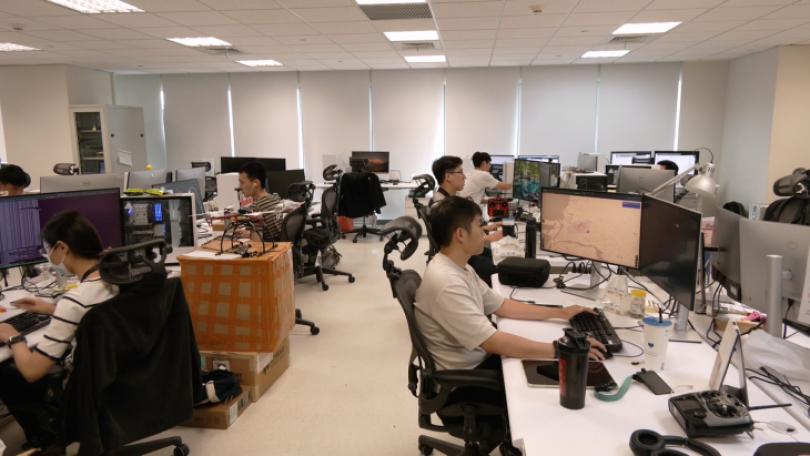Revised Law Decouples Referendums from Election|立院三讀修法 總統大選不再綁公投

發布時間:
更新時間:
Lawmakers approved amendments to the Referendum Act on June 18. Starting in 2021, referendums are to be held on the fourth Saturday of August every two years. Therefore, The referendums are now officially decoupled from next year's presidential election.
Members of NGOs chant their slogan and criticize the latest Referendum Act revision as a blow to the democratic system since it raises the threshold of passing referendum proposals. The latest revision effectively delay all the referendums that were scheduled to be held along with next year's presidential elections, and affect the rights of people to take part in referendums.
(The revision is akin to) halting a game half-way through and announcing to the audience that the game will continue in two years. It's like announcing a two-year long extension out of the blue. We strongly protest the latest revision.
Local NGOs criticize that the revision makes future referendum proposals much less likely to clear difficult requirement to become actual referendums. The opposition Kuomintang (KMT) also criticized the amendment proposed by the ruling Democratic Progressive Party (DPP), saying their proposal was politically motivated.
The DPP is really changeable. When they were the opposition party, they strongly supporting holding referendums along with local elections. Now that they are the ruling party, they have completely flip-flopped.
The referendums held last year were quite chaotic, and the DPP is looking to get it back on track.
The latest revision puts a number of ongoing referendum proposals in question. They include the referendum on the rebooting the No.4 Nuclear Power Plant which is currently in its second phase where the public submit their signatures in support of the proposal. Other ongoing proposals include Peace and Neutrality for Taiwan, proposed by Former Vice President Annette Lu, as well as the one on transforming Taiwan into a digital nation proposed by former Premier Chang San-cheng. The Central Election Commission (CEC) said these ongoing proposals will still proceed according to the previous version of the Referendum Act.
The process of passing a referendum proposal is as follows: proposing a referendum, collecting signatures, and the announcement of the referendum. For the referendum proposals that are in the process of collecting signatures, they will still proceed according the previous version of the referendum act.
The revised Referendum Act effectively pushes all referendums to August 2021, which means there won't be any referendum held during the presidential election next year. The CEC said they respect the decision made by the Legislative Yuan and will act according to the new law. The CEC also said that they recruited about 300,000 staff members for last year's nine-in-one local elections, and that they won't have to recruit as many under the revised law.
公民團體喊著口號,痛批這次公投法修正,是重創民主,重返鳥籠公投,也讓原本明年可以公投的案子,被迫往後延,公投權大受影響。
台灣環保聯盟副秘書長 潘翰疆表示:「比賽比到一半,突然留下所有的錯愕的觀眾,我們兩年後,兩年後再來比,就宣布了兩年後的延長賽,我們強烈的抗議。」
公民團體批評,除非動員力很強,未來公投案要成案,難上加難,藍營也痛批,民進黨的修法充滿政治算計。
國民黨立委 曾銘宗表示:「民進黨非常非常的可惡,尤其他在野的時候,強力支持,強力支持必須公投綁大選,但是當他成為執政黨之後,都拋諸腦後。」
民進黨立委 鍾佳濱表示:「去年我們經歷了,一個公投的一個大混亂,那因此民進黨這次的修法當中,我們希望能夠讓公民投票,回復到他應有的常軌。」
由於「重啟核四」公投案已經進入二階段連署,或是前副總統呂秀蓮所提、剛完成聽證程序的「台灣和平中立」公投提案、前行政院長張善政的「數位國家」公投提案等8案,提案正由中選會受理中,是否仍在明年公投?中選會強調,仍舊適用舊法的連署規定。
中選會副主委 陳朝建表示:「我們的連署分成以下的階段,包括提案的階段、連署的階段,以及成案公告的階段。那如果是已經在連署中的階段,也就是進入第二階段的連署者,仍然適用原有的連署規定。」
由於所有公投案,都要等到110年8月,才會辦理,明年總統大選,確定不會綁公投。對此,中選會表示,尊重立院的修法,法律如何規定,就照規定辦理,也強調去年九合一大選,共招募30萬的選務人員,新制上路後,選務人數需求,可能不用這麼多。

